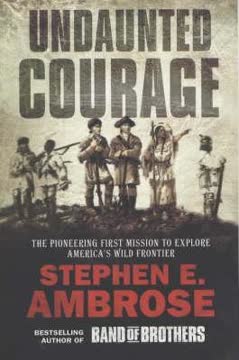Key Takeaways
1. Jefferson's Vision: An Empire of Liberty from Sea to Sea
Surely the best thing Jefferson ever did as president was the Louisiana Purchase.
Continental Ambitions. Thomas Jefferson's vision for the United States extended far beyond the existing boundaries of the original thirteen colonies. He sought to create a continental empire of liberty, stretching from the Atlantic to the Pacific, guided by the principles of democracy and religious freedom. This ambition drove his pursuit of the Louisiana Purchase and the subsequent exploration of the American West.
Northwest Ordinance. Jefferson's commitment to an "empire of equals" is exemplified by the Northwest Ordinance, which ensured that new territories would enter the Union as fully equal states, with the same rights and representation as the original members. This principle was later applied to the Louisiana Purchase territories, preventing the creation of colonies and fostering a sense of shared destiny.
Strategic Importance. Jefferson understood the strategic importance of controlling the Mississippi River and the port of New Orleans. He recognized that the economic and political future of the trans-Appalachian West depended on access to these vital waterways, and he was willing to forge alliances, even with Great Britain, to secure American interests in the region.
2. Lewis: The Embodiment of Undaunted Courage and Enlightenment Ideals
“Of courage undaunted, possessing a firmness & perseverance of purpose which nothing but impossibilities could divert from it’s direction...I could have no hesitation in confiding the enterprize to him.”
Jefferson's Choice. Meriwether Lewis was carefully selected by Thomas Jefferson to lead the Corps of Discovery, embodying the qualities of courage, intelligence, and adaptability necessary for such a challenging mission. His frontier upbringing, military experience, and scientific curiosity made him the ideal candidate to explore the unknown territories of the American West.
Enlightenment Man. Lewis was a product of the Enlightenment, possessing a thirst for knowledge, a keen eye for observation, and a commitment to scientific inquiry. He meticulously documented the flora, fauna, geography, and ethnology of the lands he traversed, contributing significantly to the understanding of the American West.
Personal Struggles. Despite his outward strength and competence, Lewis battled inner demons, including periods of depression and self-doubt. These struggles, coupled with the immense pressure of his responsibilities, added a layer of complexity to his character and highlight the human cost of exploration.
3. The Louisiana Purchase: A Stroke of Genius Tempered by Moral Contradictions
The Federalist Party opposed the Purchase, arguing that nowhere in the Constitution is power granted to the President to purchase additional lands...
Doubling the Nation. The Louisiana Purchase of 1803 was a transformative event in American history, doubling the size of the country and opening up vast new territories for exploration and settlement. This acquisition, secured for the relatively low price of fifteen million dollars, was a testament to Jefferson's diplomatic skill and vision.
Constitutional Debate. The purchase sparked a heated debate over the constitutionality of the president's power to acquire new lands. While the Federalist Party opposed the acquisition, Jefferson argued that the Constitution did not explicitly prohibit such actions, and that the benefits of the purchase outweighed any potential legal concerns.
Slavery's Shadow. The expansion of American territory also brought the issue of slavery to the forefront. The Louisiana Purchase territories were already inhabited by enslaved people, and the question of whether slavery would be allowed to expand into these new lands would become a major source of conflict in the years leading up to the Civil War.
4. The Expedition's Dual Mandate: Exploration and Political Influence
His purpose was to look for an all-water route across the western two-thirds of the continent, and to discover and describe what Jefferson had bought from Napoleon.
Scientific Discovery. The Lewis and Clark Expedition was primarily tasked with exploring and mapping the newly acquired Louisiana Purchase, documenting its natural resources, and establishing relations with the native inhabitants. This scientific endeavor was driven by Jefferson's insatiable curiosity and his belief in the power of knowledge.
Claiming Sovereignty. The expedition also served a political purpose, asserting American sovereignty over the vast territories of the West and laying the groundwork for future expansion. By establishing trade relations with Indian tribes and mapping the region's waterways, Lewis and Clark aimed to secure American dominance in the region.
Finding a Water Route. A key objective was to discover a navigable waterway connecting the Missouri River to the Pacific Ocean, facilitating trade and communication across the continent. While the expedition ultimately failed to find such a route, it provided valuable information about the geography of the West and the challenges of overland travel.
5. The Brutal Realities of Frontier Life and the Army's Role
The general idea is that the army is the school of debauchery, but believe me it has ever proven the school of experience and prudence to your affectionate son.
Harsh Discipline. The U.S. Army of the early 19th century was a harsh and unforgiving institution, characterized by strict discipline, frequent floggings, and a wide gap between officers and enlisted men. Desertion was a common problem, and officers often resorted to extreme measures to maintain order.
Frontier Constabulary. The army's primary role was to serve as a frontier constabulary, maintaining order among settlers and preventing conflicts with Indian tribes. This often involved patrolling vast territories, building forts, and engaging in skirmishes with hostile groups.
Officer Conduct. Despite the strict regulations, many officers engaged in heavy drinking, wenching, and land speculation. Duels were common, and senior officers often turned a blind eye to these activities as long as they did not interfere with military operations.
6. The Complexities of Indian Relations: Noble Savages and Economic Imperatives
I believe the Indian then to be in body and mind equal to the whiteman.
Jefferson's Idealism. Thomas Jefferson held a relatively optimistic view of Native Americans, believing that they were capable of civilization and integration into American society. He envisioned a future in which Indians would adopt agriculture, embrace Christianity, and become citizens of the United States.
Economic Coercion. Jefferson's Indian policy was also driven by economic considerations. He sought to establish a system of trade that would make Indian tribes dependent on American goods, thereby securing their loyalty and facilitating the acquisition of their lands.
The Contradiction of Removal. Despite his stated commitment to assimilation, Jefferson also advocated for the removal of Indian tribes from their ancestral lands, particularly those east of the Mississippi River. This policy, driven by the insatiable demand for land among American settlers, would have devastating consequences for Native American communities.
7. The Missouri River: A Highway to the West Fraught with Peril
The river Missouri, & the Indians inhabiting it, are not as well known as is rendered desireable by their connection with the Mississippi, & consequently with us.
Navigational Challenges. The Missouri River presented numerous challenges to navigation, including its strong current, shifting sandbars, and submerged obstacles. These difficulties made travel slow and arduous, requiring constant vigilance and physical exertion from the expedition members.
Indian Encounters. The Missouri River was also home to numerous Indian tribes, some of whom were friendly and eager to trade, while others were hostile and posed a threat to the expedition's safety. Navigating these complex relationships required diplomacy, caution, and a willingness to use force when necessary.
A Lifeline to the West. Despite its challenges, the Missouri River served as a vital lifeline to the American West, providing a means of transporting goods, information, and people to and from the interior of the continent. The Lewis and Clark Expedition's exploration of the Missouri was essential for understanding its potential as a commercial and strategic waterway.
8. The Great Falls Portage: A Test of Endurance and Ingenuity
I am a more confined overseer here than when at Locust Hill.
A Staggering Task. The portage around the Great Falls of the Missouri was one of the most difficult and time-consuming challenges of the entire expedition. The men had to haul their heavy canoes and baggage over seventeen miles of rough terrain, battling heat, mosquitoes, and prickly pears.
Ingenuity and Improvisation. To overcome these obstacles, the expedition members displayed remarkable ingenuity and improvisation, constructing wagons from cottonwood trees and devising methods for hauling the canoes over the plains. Their resourcefulness and determination were essential for the success of the portage.
A Turning Point. The Great Falls portage marked a turning point in the expedition, testing the limits of the men's physical and mental endurance. It also highlighted the vastness and unforgiving nature of the American West, and the challenges that lay ahead.
9. Encountering the Shoshones: A Blend of Hope and Cultural Misunderstanding
I believe the Indian then to be in body and mind equal to the whiteman.
A Desperate Need for Horses. The Shoshone Indians were essential to the expedition's success, as they possessed the horses needed to cross the Rocky Mountains. Establishing friendly relations with the Shoshones was therefore a top priority for Lewis and Clark.
Cultural Differences. Despite their best efforts, the captains struggled to understand Shoshone culture and customs, often misinterpreting their actions and motivations. This cultural misunderstanding led to tensions and difficulties in their interactions with the tribe.
Sacagawea's Role. Sacagawea played a crucial role in the expedition's encounter with the Shoshones, serving as a translator and cultural bridge between the two groups. Her presence helped to ease tensions and build trust, paving the way for a successful trade for horses.
10. Crossing the Bitterroots: A Descent into a Mountainous Hell
The general idea is that the army is the school of debauchery, but believe me it has ever proven the school of experience and prudence to your affectionate son.
A Perilous Journey. The crossing of the Bitterroot Mountains was a harrowing experience for the expedition, pushing the men and horses to the limits of their endurance. The steep, snow-covered trails, dense forests, and lack of food made for a brutal and unforgiving journey.
Desperation and Hunger. As their supplies dwindled, the expedition members were forced to kill and eat their horses, a desperate measure that reflected the severity of their situation. The constant hunger and fatigue took a toll on their physical and mental health.
The Lolo Trail. The Lolo Trail, a narrow and treacherous path through the Bitterroots, tested the limits of the expedition's resolve. The men had to navigate steep cliffs, fallen timber, and icy streams, all while battling hunger, exhaustion, and the constant threat of accidents.
11. Fort Clatsop: A Winter of Discontent and Ethnographic Observation
I am a more confined overseer here than when at Locust Hill.
A Damp and Dreary Winter. The winter spent at Fort Clatsop was a period of hardship and discontent for the expedition members. The constant rain, limited food supplies, and lack of social interaction took a toll on their morale.
Ethnographic Studies. Despite the difficult conditions, Lewis and Clark continued to document the culture and customs of the local Clatsop and Chinook tribes. Their observations provide valuable insights into the lives of these Native American communities before they were significantly impacted by European contact.
Longing for Home. As the winter wore on, the expedition members grew increasingly homesick and eager to return to the United States. The prospect of completing their mission and reuniting with their families provided a much-needed source of motivation.
12. The Return Journey: A Shift in Focus and Lingering Questions
I feel my situation in the President’s family an extreemly pleasent one.
A Divided Expedition. The return journey saw the Corps of Discovery split into several smaller groups, each tasked with exploring different regions of the Louisiana Purchase. This division reflected the expedition's dual mandate of exploration and political influence.
Lewis's Marias Exploration. Lewis's exploration of the Marias River was driven by a desire to map the northernmost reaches of the Louisiana Purchase and to establish contact with the Blackfeet Indians. This mission, however, was fraught with danger and ultimately ended in a violent confrontation.
Lingering Questions. As the expedition neared its end, questions remained about the future of the American West and the fate of its native inhabitants. The challenges of balancing exploration, commerce, and diplomacy would continue to shape American policy in the region for decades to come.
Last updated:
FAQ
What’s Undaunted Courage by Stephen E. Ambrose about?
- Chronicles the Lewis and Clark Expedition: The book details the first American mission to explore the Louisiana Purchase and the American West from 1804 to 1806, led by Meriwether Lewis and William Clark.
- Focus on Leadership and Discovery: It explores the challenges, discoveries, and leadership of Lewis, highlighting his personal journey and the broader historical context.
- Blends History, Science, and Politics: Ambrose situates the expedition within early 19th-century American politics, Jefferson’s vision, and the scientific and diplomatic goals of the mission.
Why should I read Undaunted Courage by Stephen E. Ambrose?
- Comprehensive Historical Insight: The book offers a richly detailed, accessible account of one of America’s most significant exploratory missions, combining scholarly research with vivid storytelling.
- Humanizes Historical Figures: Ambrose presents Lewis, Clark, and their men as real people, exploring their strengths, weaknesses, and emotional struggles.
- Reveals Lasting Impact: Readers gain an understanding of the expedition’s legacy on American expansion, Indian policy, and scientific knowledge.
What are the key takeaways from Undaunted Courage by Stephen E. Ambrose?
- Birth of American Expansionism: The expedition symbolizes the United States’ emergence as a continental nation and the origins of its westward ambitions.
- Leadership and Endurance: The story highlights the importance of leadership, teamwork, and resilience in overcoming extreme adversity.
- Scientific and Cultural Contributions: Lewis and Clark’s meticulous documentation of plants, animals, geography, and Native American cultures greatly expanded American knowledge and set standards for future exploration.
Who was Meriwether Lewis, and how did his background prepare him for the expedition in Undaunted Courage?
- Frontier Upbringing and Education: Lewis grew up in Virginia with a mix of wilderness skills and formal education, showing early signs of leadership and curiosity.
- Military and Administrative Experience: He served in the Virginia militia and U.S. Army, gaining experience in leadership, logistics, and frontier survival.
- Mentorship by Jefferson: As Jefferson’s private secretary, Lewis received intensive training in natural history, geography, and navigation, shaping him into a capable explorer and scientist.
What was President Thomas Jefferson’s vision for the Lewis and Clark Expedition in Undaunted Courage?
- Empire of Liberty: Jefferson aimed to expand the United States from coast to coast, using the expedition to explore and claim the vast western lands of the Louisiana Purchase.
- Scientific and Commercial Goals: The mission was tasked with finding a water route to the Pacific, mapping the territory, and studying its natural resources.
- Political and Strategic Motives: Jefferson wanted to assert American sovereignty, counter European influence, and integrate the West into the Union.
How did the Louisiana Purchase shape the Lewis and Clark Expedition according to Undaunted Courage?
- Doubled the Nation’s Size: The Purchase added 825,000 square miles, creating an urgent need to explore and understand the new territory.
- Shifted Political Boundaries: Control of the land moved from Spain and France to the U.S., requiring the expedition to assert American presence and inform Native tribes of their new “Great Father.”
- Expanded Objectives: The acquisition increased the expedition’s importance, urgency, and scope, including mapping unknown boundaries and securing American claims.
What were the main challenges faced by Lewis and Clark during the expedition as described in Undaunted Courage?
- Geographical Unknowns: The team navigated uncharted rivers, mountains, and wilderness with limited maps and knowledge.
- Relations with Native Americans: They encountered numerous tribes, requiring delicate diplomacy, negotiation, and sometimes defense.
- Logistical and Environmental Hardships: The expedition faced harsh weather, difficult terrain, supply shortages, disease, and physical exhaustion.
How did Lewis and Clark interact with Native American tribes in Undaunted Courage?
- Peaceful Diplomacy with Caution: Jefferson’s orders emphasized making favorable impressions and avoiding conflict, but the captains prepared for defense if necessary.
- Use of Interpreters and Gifts: They employed interpreters and distributed trade goods, medals, and flags to symbolize American friendship and sovereignty.
- Cultural Misunderstandings: The captains sometimes misjudged tribal politics and customs, leading to both successful alliances and diplomatic challenges.
What scientific and ethnographic contributions did Lewis and Clark make according to Undaunted Courage?
- Natural History Documentation: The expedition collected and described numerous new plants and animals, expanding scientific knowledge of North America.
- Meteorological and Geographical Data: Lewis kept weather diaries and Clark created detailed maps, providing the first accurate data for the region.
- Ethnographic Studies: They recorded languages, customs, and social structures of Native American tribes, contributing to early American anthropology.
What role did Sacagawea play in the Lewis and Clark Expedition as described in Undaunted Courage?
- Interpreter and Guide: Sacagawea, a Shoshone woman, facilitated communication with Native tribes and helped guide the expedition through difficult terrain.
- Symbol of Peace: Her presence, especially with her infant son, signaled peaceful intentions to other tribes and reduced the risk of conflict.
- Personal Resilience: She endured illness, pregnancy, and the journey’s hardships, contributing to the expedition’s survival and success.
What leadership qualities did Meriwether Lewis demonstrate during the expedition in Undaunted Courage?
- Resilience and Determination: Lewis led his men through extreme adversity, maintaining morale and discipline.
- Hands-on and Participative: He shared in the work and hardships, earning the trust and loyalty of his men.
- Diplomatic and Scientific Skill: Lewis balanced diplomacy with Native tribes, scientific curiosity, and practical command, ensuring the mission’s success.
What are the best quotes from Undaunted Courage by Stephen E. Ambrose and what do they mean?
- Jefferson on Lewis: “Of courage undaunted, possessing a firmness & perseverance of purpose which nothing but impossibilities could divert from it’s direction…”—Jefferson’s praise for Lewis’s unique qualifications.
- Lewis on His Mission: “The charge of this expedition is honorable to myself, as it is important to my Country.”—Reflects Lewis’s sense of duty and national pride.
- On Accomplishment and Reflection: “I reflected that I had as yet done but little, very little indeed, to further the hapiness of the human race…”—Lewis’s humility and Enlightenment ideals.
- On Leadership and Endurance: “If the Indians could pass these mountains with their women and Children, that we could also pass them.”—Lewis’s confidence in his men and leadership.
- On the Louisiana Purchase: “The annexation of Louisiana was an event so portentous as to defy measurement…”—Henry Adams on the transformative impact of the Purchase.
Review Summary
Undaunted Courage receives mostly positive reviews for its detailed account of the Lewis and Clark expedition. Readers praise Ambrose's storytelling and ability to bring the journey to life. Many find the book informative and engaging, though some note it can be overly detailed at times. The exploration of the American West and interactions with Native tribes fascinate readers. While the expedition narrative is widely enjoyed, some find the sections on Lewis's post-expedition life less compelling. Overall, the book is highly recommended for those interested in American history and exploration.
Similar Books
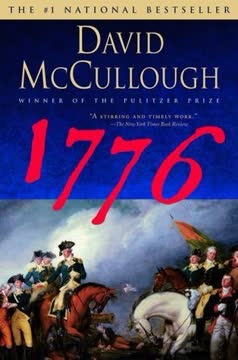
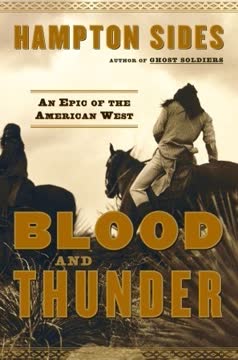
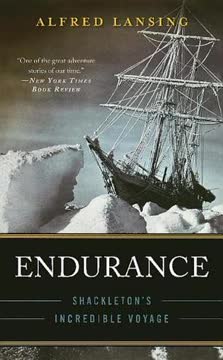
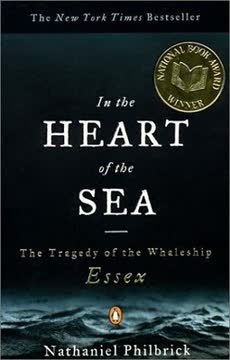


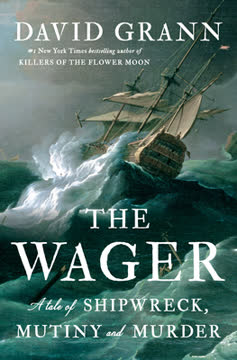
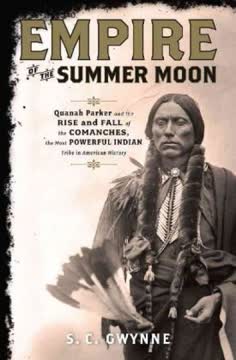
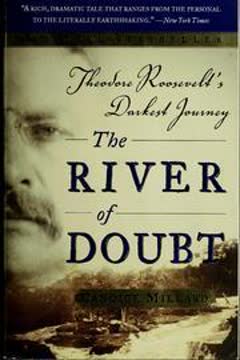
Download PDF
Download EPUB
.epub digital book format is ideal for reading ebooks on phones, tablets, and e-readers.
